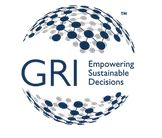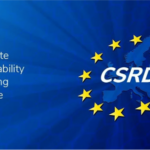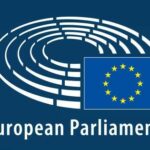
The EU Directive on Non-Financial and Diversity Disclosure affects thousands of companies based in the EU, and by now, most EU Member states have completed the process of transposing the EU Directive on Non-Financial and Diversity Disclosure into national legislation. While most followed the Directive in determining the scope of the legislation (the criteria outlining which and how many companies are required to issue a report containing non-financial data) some countries were bolder and expanded the scope. For example, Swedish and Danish legislation requires not only companies with over 500 full time employees to report on sustainability data, but all large companies with over 250 employees.
The EU Directive references GRI as a tool to fulfill the transparency expectations formulated in the Directive. To strengthen the support for businesses as they begin adhering to the new Directive, GRI recently signed a memorandum of understanding with CSR Europe – the European Business Network for Corporate Social Responsibility. “Our collaboration with GRI is a great opportunity to promote corporate transparency as one of the means towards more integrated sustainability across businesses,” said Stefan Crets, Executive Director at CSR Europe. “There is a real need for joint effort in the work with companies and their stakeholders, not only to promote transparency, but also to work together towards a more inclusive and sustainable society and contribute to the global development agenda, for example the UN SDGs.”
Support for business: The EU Non-financial reporting Directive Platform
GRI and CSR Europe began collaborating several years ago, and in 2015, established the EU Non-financial reporting Directive Platform – an informal discussion platform that allows businesses and civil society to share information that can support the effective implementation of the EU Directive.
“The ongoing collaboration between CSR Europe and GRI helps both organizations to expand our reach and our knowledge sharing opportunities on issues of corporate transparency. We look forward to continuing our joint projects and exploring further collaboration on additional issues with CSR Europe in the coming years”, said Teresa Fogelberg, Deputy Chief Executive of GRI.
As part of the collaboration, CSR Europe convened a seminar in December 2016 in Belgium to discuss the state of play and implementation of the legislation in the Member States. High level representatives of the European Commission, business and civil society participated in the meeting.
The latest output of the platform is a webinar, taking place today, informing participants of the latest developments regarding the transposition and implementation of the EU Directive from the various Member States. The webinar also provides guidance on how the GRI Standards and CSR Europe support companies in their reporting.
Upcoming guidance for complying with the Directive
Next week, GRI launches its guidance for companies reporting with the GRI Standards, enabling them to comply with the EU Directive. The publication, ‘Making Headway in Europe’ highlights the disclosures in the GRI Standards that can be used to comply with the Directive. Guidance for those companies using the GRI G4 Guidelines has already been created (view the guidance here).
On 16 February, the European Commission is holding a second stakeholder’s workshop (invitation only) to gather views and feedback on drafting solutions for the forthcoming Commission non-binding guidelines on disclosure of non-financial information. GRI will be present at the workshop to provide expert input to the process.


